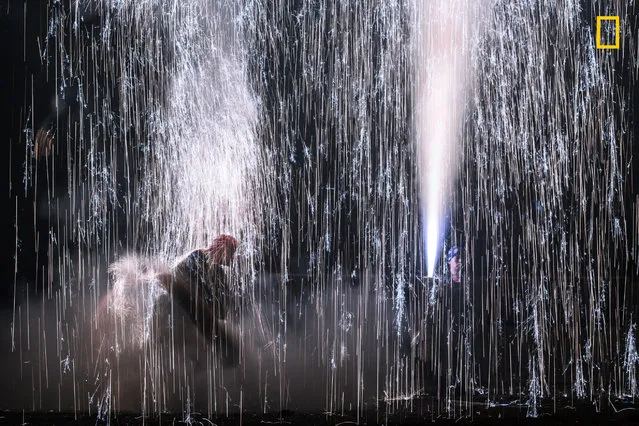
“It is the oldest traditional fireworks in Japan. The event is a ritual worshiping god. These hand tube fireworks use 3kg of gunpowder and all of the fireworks are handmade by the festival participants. Toyohashi City, Aichi Prefecture is the birthplace of hand-held fireworks”. (Photo by Hidenobu Suzuki/National Geographic Travel Photographer of the Year Contest)
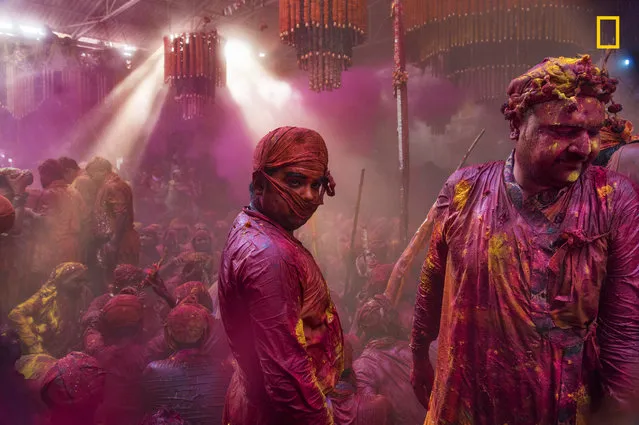
“Lath mar Holi is a local celebration of the Hindu festival of Holi. It takes place days before the actual Holi in the neighboring towns of Barsana and Nandgaon near Mathura in the state of Uttar Pradesh, where thousands of Hindus and tourists congregate, each year”. (Photo by Sampa Guha Majumdar/National Geographic Travel Photographer of the Year Contest)

Andrey Karr from Western Riders Slacklines at sunset above big waves in Nazare, Portugal on December 27, 2017. (Photo by Aidan Williams/National Geographic Travel Photographer of the Year Contest)
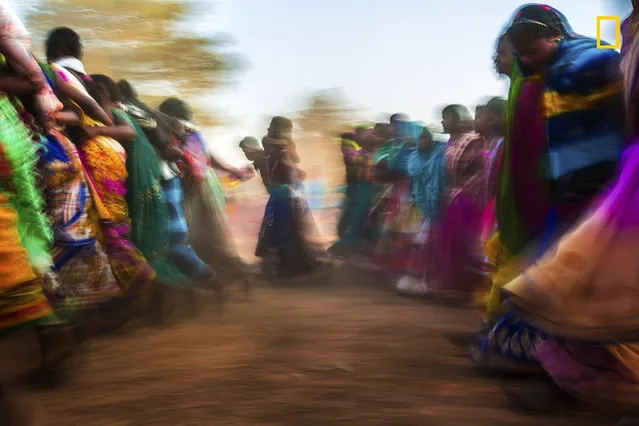
“Local festivals are the best time to understand the vibrant tribal culture. The Ghotpal Mandai in the Dantewada region of India is dedicated to the local deity. The local deities of all the neighboring villages gather for the Ghotpal mela. The main attractions are the colorful display of culture through the Bison-Horn Madiya dance. Movements to the rhythm of tribal instruments evoke the soul of wanderlust”. (Photo by Willy Sanson/National Geographic Travel Photographer of the Year Contest)
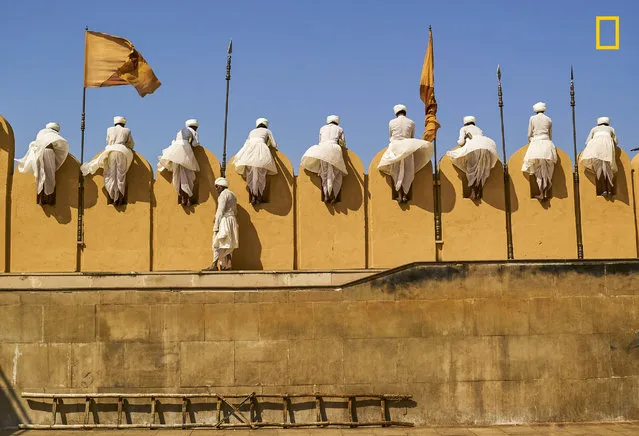
“My imagination ran wild, I was smelling the gunpowder, hearing the gun shots, neighing of the horses and the screams of the wounded, picturing what is it like to be under siege, protecting your freedom and ideals against foreign invasion. But human mind is incredible, a sudden breeze of wind took me straight to a different time, a completely different movie set, a hundred or so years later, well famed for a single white dress...”. (Photo by Tihomir Trichkov/National Geographic Travel Photographer of the Year Contest)
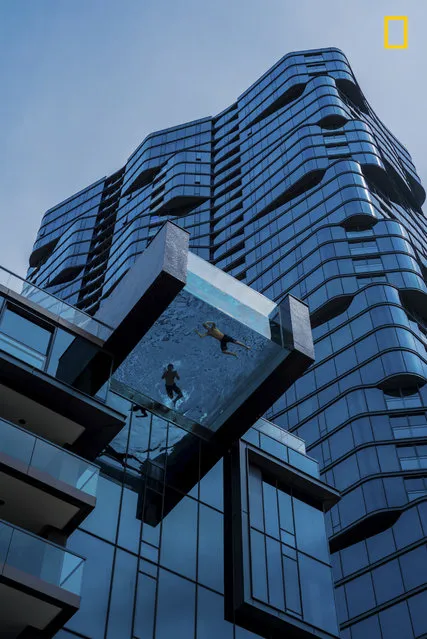
“One day while adventuring in oahu, I looked up to find two kids flying! The moment I directed my camera at them, they became so excited that they began making faces and flashing peace signs. A moment that made the worries of the world dissipate, and all that remained was a pristine point in time”. (Photo by Peyton Sickles/National Geographic Travel Photographer of the Year Contest)
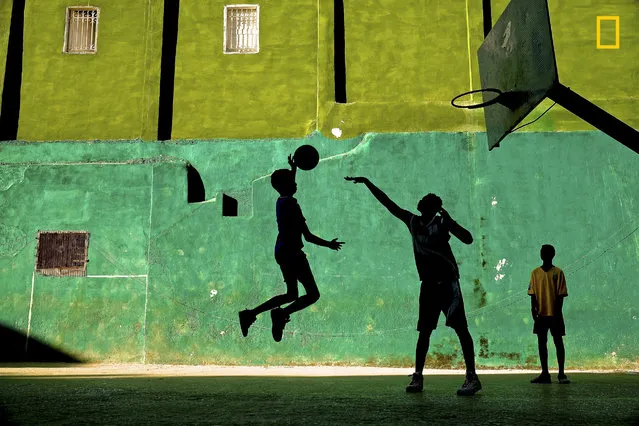
oung boys play basketball after school in a Havana neighborhood, Cuba. (Photo by Jeremy Lasky/National Geographic Travel Photographer of the Year Contest)
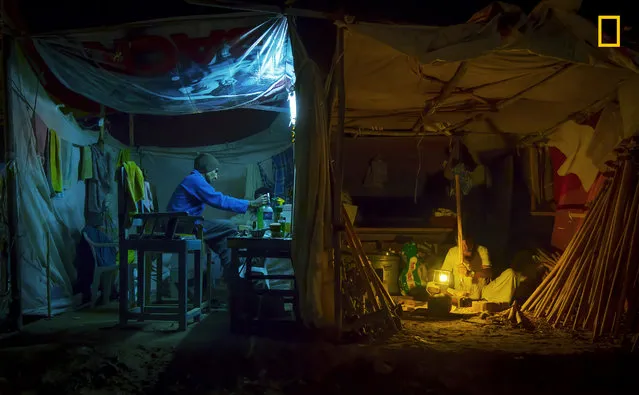
“On my trip to the Pushkar Fair in Rajasthan I came across this unique combination of lights midst the hustle bustle of the night. On one side was a barber waiting for more customers and on the other was the carpenter who was still working. People usually focus where the activity prevails. when I lifted my camera and focused it using my wide angle lens it dawned on me that the picture holistically represents two people working in different lights. then I merge their worlds into one image”. (Photo by Mahesh Lonkari/National Geographic Travel Photographer of the Year Contest)
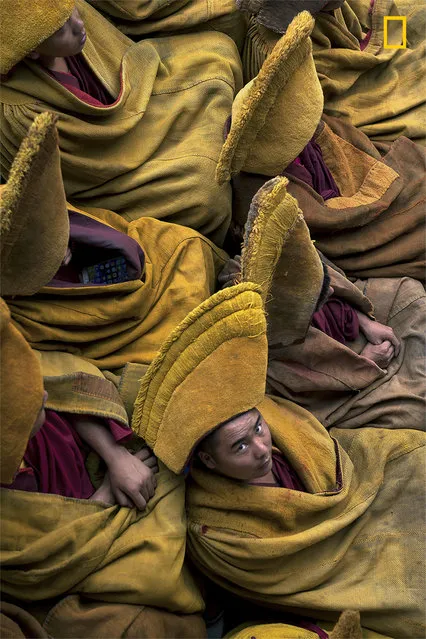
“Tibetan Monks during the weekly pray in Tashi LhunPo Monastery in Tibet. The Tashi LhunPo Monastery was founded in 1447 by the 1st Dalai Lama, is a historic important and of of the most influent monastery in Shigatse, the second-largest city in Tibet. Now residences of around 2000 monks”. (Photo by Mattia Passarini/National Geographic Travel Photographer of the Year Contest)
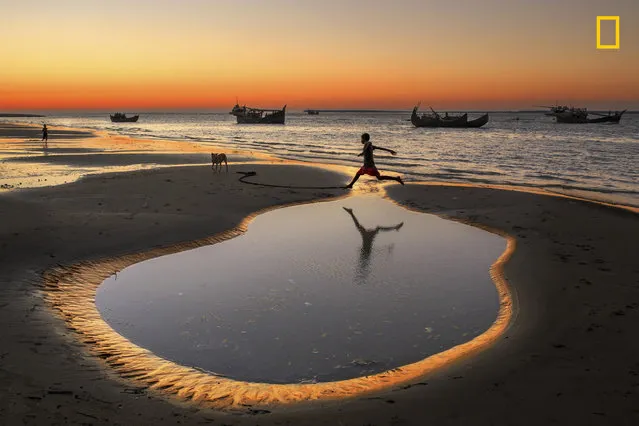
“A boy crossing the little pond beside sea beach at Coxís Bazar Dry fishing village, Bangladesh. In the village more than 5000 families engaged with dry fish processing. Their children have no modern toys to paly, so some times they play and making fun by themselves like as jumping or running”. (Photo by Yousuf Tushar/National Geographic Travel Photographer of the Year Contest)
14 May 2018 00:03:00,
post received
0 comments
